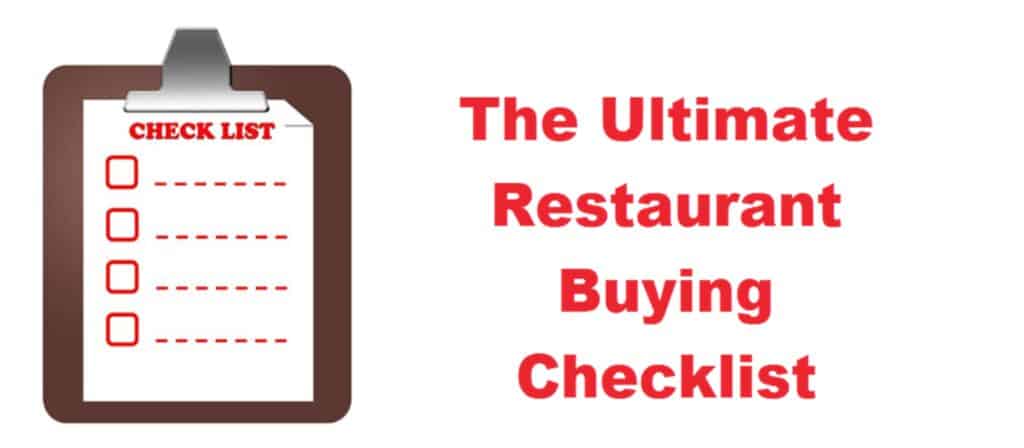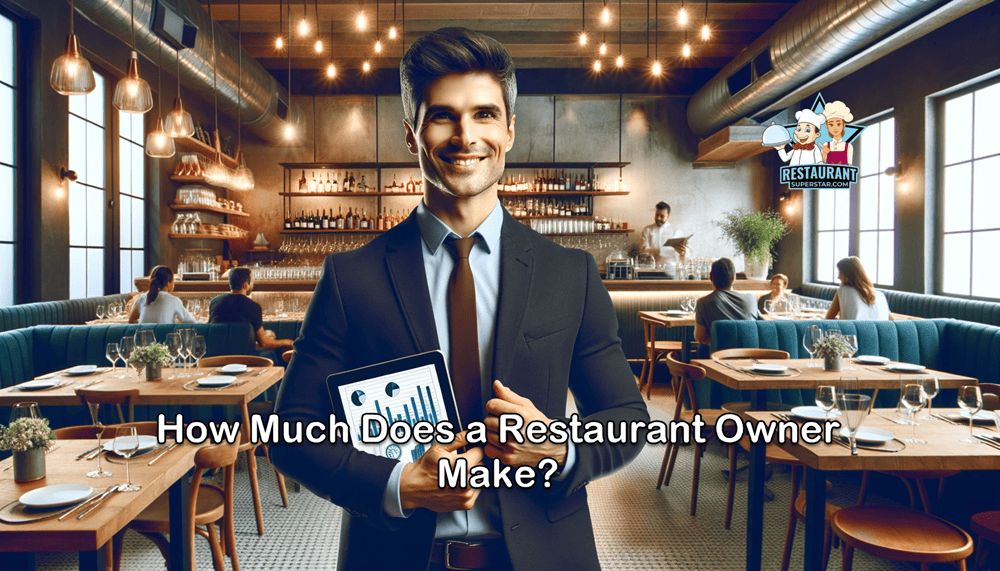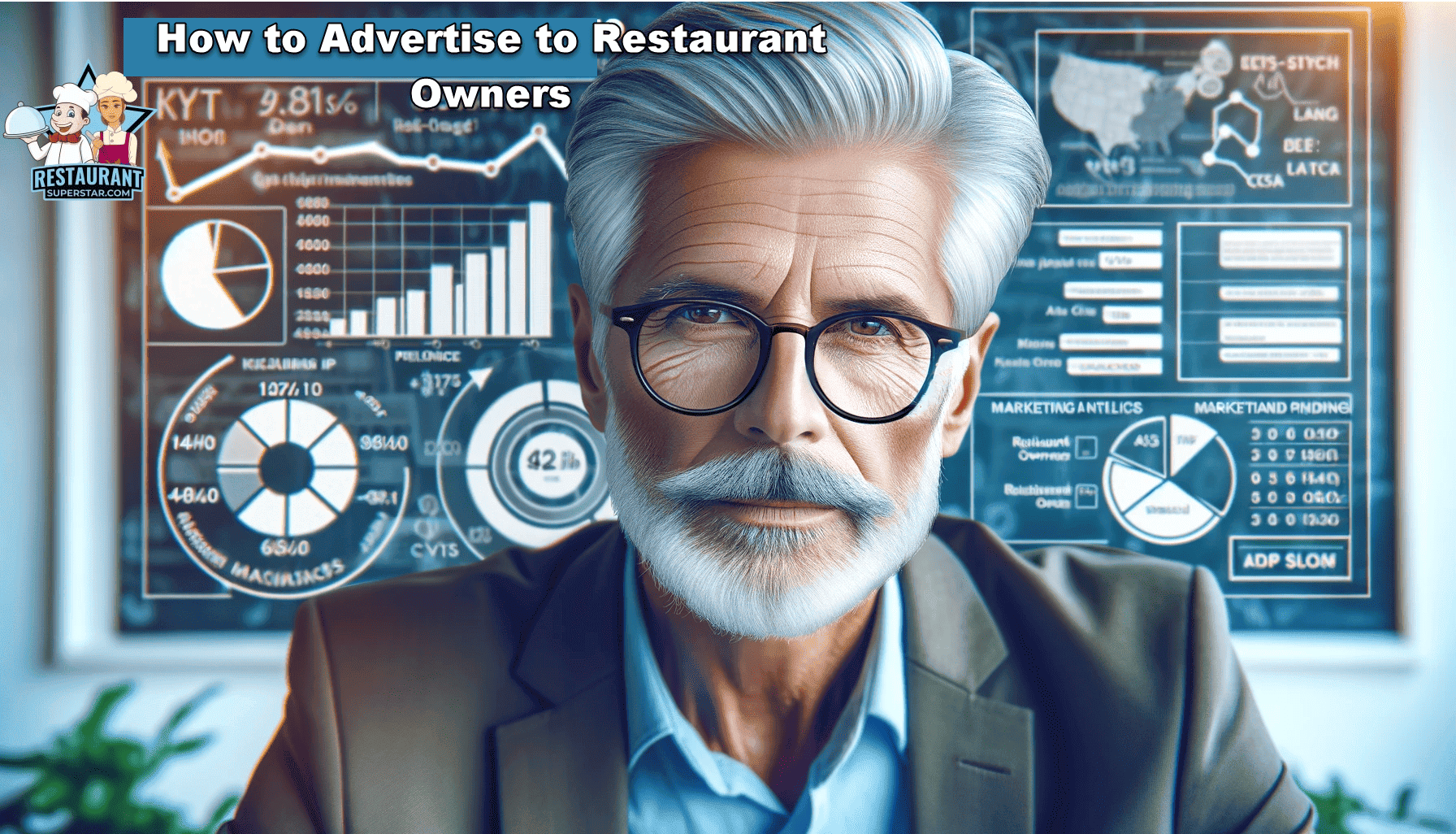The Ultimate Restaurant Buying Checklist for 2022

Hello and welcome. If you are looking for a restaurant buying checklist you are in the right place. This article will give you what you need to know when purchasing a restaurant in order to make an informed business decision. Buying an existing restaurant will undoubtedly allow you to skip the work of starting from scratch and get into business immediately. However, it comes with a unique set of difficulties.
Looking for a restaurant buying checklist? We got you covered. Check the lease carefully. Observe the location at lunch and dinner time to evaluate foot traffic. Compare the asking price to other businesses in the area. Check the demographics of the immediate area. Consider working with a broker.
Even if you’re in love with running a restaurant in your hometown, you should still consider these factors before signing on any dotted lines.
What’s the most pressing issue you must address?
What is the reason behind the current restaurant’s success?
- Is the location or structure putting you in jeopardy?
- Is it in your best interest to possess it, or are you merely purchasing the issue of the previous restaurant?
Before putting any money into a restaurant business, be aware that it needs a lot of time and rigorous market research to succeed. Many restaurants fail within three years of opening (this is true in practically every market!). Recognize the high level of danger.
To purchase a restaurant, you must research and know that you’re making the right move for yourself.
Before you buy a restaurant, take these critical steps to ensure the restaurant’s success.
Before you purchase a restaurant business, take these essential steps to ensure the restaurant’s success.
- Check the lease. When purchasing a restaurant, the remaining lease term and any clauses that limit your ability to make changes or locate other businesses on the premises should be carefully considered. You will also want to know how much a rent increase would require you to pay more than 6% of your sales (the maximum amount allowed by law).
- Check the selling price and financing options available for restaurants businesses in your market area and determine whether they fall within your intended budget before you become a victim of buying from an owner or operator facing bankruptcy proceedings due to problems with paying off debt owed by their former business enterprise once they leave.
How much are you risking buying a restaurant?
- What is the restaurant’s current profit margin?
- What is the restaurant’s current debt load?
- What is the restaurant’s current occupancy rate?
- What is the restaurant’s average check size?
Your restaurant’s lease
- What is a lease?
An official lease between you and your landlord outlines the terms of how your restaurant will use the space. It details, among other things:
- How long your lease will last, including when it renews
- Who pays what in rent, and why each party has certain obligations (often called “covenants”)
- How much notice is necessary before any side may dissolve the contract?
Analyze the selling price of your restaurant.
The selling price of your restaurant is one of the most important things to consider when buying a business. If you are purchasing a restaurant, make sure you have thought about the price and what it will mean for you in the long run.
Your restaurant’s price should be reasonable, affordable, fair, profitable, and competitive. It’s important not to overpay for an establishment.
Depending on your negotiation, your rent, your equipment and furniture, and your concept, the startup cost for a restaurant can range from $75,000 to over $2.5 million. Bear in mind that Overpaying for a restaurant can lead to problems down the road, such as being unable to cover costs, lower profits, and an inability to compete.
The demographics of a restaurant’s location.
- The success of a restaurant business may be assessed using demographics, which is the study of human populations.
- The demographics of an eatery’s location are crucial because they can help you understand if your business will be successful there. For example, suppose you are opening a bakery and living in an area with many seniors. If so, you should be aware that persons over 60 have a higher standard of living than those under 40.
- You can learn about demographics by reading local newspapers and talking with people who own businesses in your area.
Is there enough traffic in your area?
When looking to buy a restaurant business, be sure to take traffic into account. Make sure there are enough locals who will visit your restaurant before you even consider location or style.
You may do this in one of two ways: by determining the demographics of your area and finding out how many potential customers there are in each demographic. You can also estimate how many people visit a specific spot on average by calculating local traffic counts. To figure out how much traffic is typically generated by businesses in an area, look at their websites or call them directly and ask what kind of numbers they usually see on a busy day.
If there aren’t enough people in your target demographic (or if it’s too expensive), think about ways that could change over time—such as adding more businesses in the same industry or changing up your concept altogether to appeal more broadly (e.g., from barbeque to Mexican food).
Don’t forget parking!
As you may have guessed, parking is a significant factor in determining a restaurant’s success. Parking can affect your bottom line, and it can also affect the success of your business by making or breaking customer satisfaction.
There are many reasons why parking is so important:
- Customers need to be able to find a parking space. Suppose the only option for them is a nearby meter that costs $2 an hour and doesn’t allow for more than two hours at once. In that case, they’re going to go elsewhere—and possibly tell their friends about how difficult it was to park there!
- The city wants people who live near restaurants or bars to be able to quickly get home after they’ve had some drinks (or whatever else they’re drinking). Suppose these people can’t find free parking within walking distance of where they live. In that case, those residents will probably drive elsewhere instead of patronizing your business—and no one wants that kind of competition!
What is your competition like?
When evaluating a restaurant business, the first factor to take into account is “How competitive is the market?” Success depends heavily on your information, on what and how your competitors are doing. To succeed, you will have to compete with more than simply other eateries in the area.
- What are their strengths?
- Offer something unique or better than them.
- Are they good at marketing themselves?
- Do they have loyal customers or an established brand name?
Restaurant equipment and furniture.
Any restaurant business must have certain furniture, fixtures, and equipment. For consumers to unwind, they must be welcoming and beautiful, durable enough for daily use, and easy to clean, maintain and move around daily. In the same vein, they should also be easy to store away when not in use – especially if you have a small kitchen space!
Make Sure They Have a Good Restaurant POS System
The POS System is also a critical factor that shouldn’t be left out; You will discover this as you read through. The restaurant you purchase will most likely come with a POS system. The main thing to look for is if the system is easy to use. If it’s hard to use, then you may not be able to get a good return on your investment. Choosing a POS that is easy to use is the best choice. Make sure you can set up all your payment methods easily.
Restaurant POS companies can assist you if you aren’t familiar with the system or are having trouble using it.
Several point-of-sale (POS) providers are available online, each with unique features. Choose the one that will assist you in growing your company, and you’ll be on your way. Make sure your POS software is compatible with your POS system.
You can become successful if you find the right place in the correct location.
Location is key. The most important factor when buying a restaurant is the location. Location is the reason why you will be successful, why you can make money and attract customers. Always check this out before you sign that Agreement.
You need to know the basics about the restaurant you’re considering purchasing.
By taking these steps:
- Lease terms and possibilities are discussed. Get a copy of the rental agreement!
- Any pending or previously litigated cases (including workers comp claims & problems)
- Is a liquor license transferable if you sell the business?
- Information about suppliers and employees
- Information on vandalism in the area? Crime? Changes to the zoning regulations? Is there any demolition going on? Do you know who the main rivals are in the area?
- A company’s ownership structure and how tax returns and financial statements from the previous three years have been handled are also important considerations to keep in mind.
- There may be complications with the health department.
- Check out internet review sites like Yelp to discover how well-known the establishment is.
When you’re ready to buy your restaurant refer to this list.
A checklist of what you need to have and finish before you make a purchase follows these crucial considerations:
- A non-disclosure and confidentiality agreement ensures that no one, including the prospective buyer’s current or potential employers, workers, or competitors, would know about the planned acquisition until it is finalized.
- Banks will not lend to restaurants unless they have three years of tax returns and sufficient financial proof.
- A Tax Letter of Good Standing is essential when a liquor license is involved. The state might revoke your liquor license if you have delinquent taxes! This might result in a significant financial setback for your business.
- The vendor should set up a face-to-face meeting so that you may inspect the restaurant in person and get familiar with its processes, such as check-in and check-out times.
- The next step is to make an offer, which you should do after you’ve visited the restaurant and spoken with the owner. You may now put a good faith deposit into escrow and sign a purchase agreement with the buyer after the selling price. Acceptable conditions have been agreed upon (It is a document that only becomes effective if it is held in the hands of a third party and only takes effect when a specific condition is met).
- Once you sign the purchase agreement, you’ll need to put down the “earnest money” or “good faith deposit,” which is also known as “earnest money.”
- After you’ve completed the stages mentioned above, it typically takes 45 to 60 days to finalize the sale of a restaurant. Finally, a meeting is held so both parties may transfer ownership of the restaurant company and their respective money.
Restaurant Buying Checklist
It would be best if you researched these questions thoroughly when buying a restaurant:
- Vendor Details-
- Insurance Plans
- Outstanding legal disputes( Any legal disputes still pending)
- Contractor Specifications (any people working with them who are not employees – (what is the arrangement.)
- Information on zoning or use restrictions
- Significant rivals in the region, rivals from the past, and rivals from the future
- Whether key employees go or remain( If the employees will be retained or not)
- The management of accounting information. (Obtain copies of your most recent three years’ financial statements and tax filings.)
- Lawyers and CPAs names.
- Workers’ compensation claims and issues( Any unpaid claims to injured workers.)
- Business trends and the explanation for their departure.
- Past legal disputes
- Ownership Business structure (Corporate? Partnership? Who owns it now, and who previously owned it?
- Optional agreements and lease terms (Obtain a duplicate of the lease.)
- Warranty; Title to Fixtures and Related Documentation
- Employment Data
- Former proprietors and workers
- Relationship with the health department; inspections.
- Any union-related difficulties
- Why sell when you’re ready to learn?
- Parking problems, Storage problems? Dispose of hazardous waste?
- Vandalism or neighborhood crime?
- Changes in the area?
- Zoning amendments? Problematic construction? Road changes?
- Adjacent commercial relationships? Complaints?
- Any problems with the local administration during the last three years? Issues or grievances in the neighborhood (odors, etc.)
- Any grievances with the EEOC or other organizations?
- Have there been any recent tax audits?
- Any branch shops that have opened or closed, and their histories?
- Any modifications to the local clientele (e.g., the factory closed, the mall closed, etc.)
- Any employees that quit and started their businesses nearby, etc.?
- Any orders for delivery? Percentage? have they dealt with it?
- Advertising? When, where, and how? Special offers made to win business? Describe.
- Previous bids accepted? Pending? What is their current situation?
- Internet sites? Email?
- Trademarks, trade names, and logos?
- Recipes? Copyrights? Logos? Cost of signs Deflation on the same?
ECONOMICS THAT YOU MUST KNOW AND ASK ABOUT
- Validity of the books; CPA endorsement. Will they guarantee the same amount of business in the future?
- Cost analysis; Gross and Net examination.
- Payroll evaluation.
- Tax returns for three years; five years are preferable
- Advice and methods used.
- Returns for sales tax and excise tax, if necessary.
- Sales and net trend patterns. Trends in costs.
- The vendor’s payment history (on time) (Obtain their credit report.)
- Fringes, both inside and outside the literature
- Schedule for depreciation and the cost of furnishings.
- What belongs to the landlord, and what may be moved or fixed?
- What is the price of training, and what options are available?
- What Vendors have received what personal guarantees?
- Proof that all business taxes have been paid.
- Name of the company’s bookkeeper and CPA. Payroll assistance?
- Alcohol license? Applied for anything? sales of wine and beer?
- Historical depreciation schedule;
Make Sure You Want It
Hard work is required to run a restaurant. You’ll spend a lot of time at the restaurant, so plan accordingly. For the first several years, you won’t be making a lot of cash. But if you’re committed to running your own business, then it’s worth it.
CONCLUSION
Although buying a restaurant is typically romanticized, the reality is that it is a complex process that takes a great deal of thought. It’s fantastic to realize a long-held ambition of owning a restaurant, but you don’t want to be saddled with debt.
Jeff Smith is a Restaurant Consultant with over 20 years of hospitality experience ranging from server to owner and general manager. He focuses on Restaurant POS technology as well as restaurant marketing. Make sure to check out our world famous restaurant resources page for a comprehensive offering of hand picked resources and tools to help your business. You can also check out some of our other restaurant business articles.



